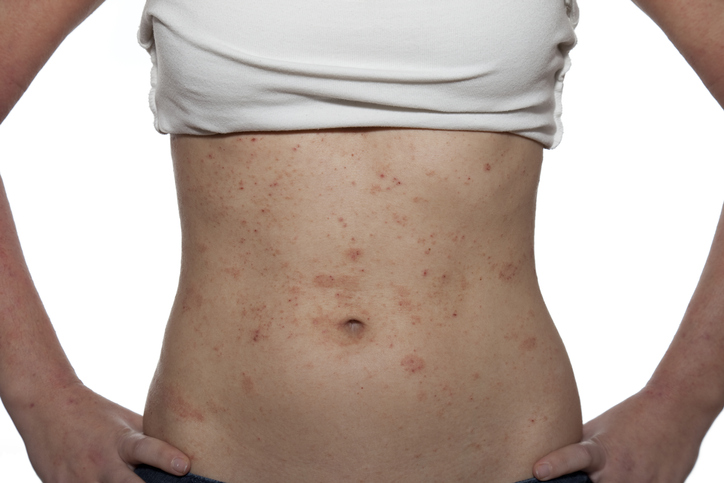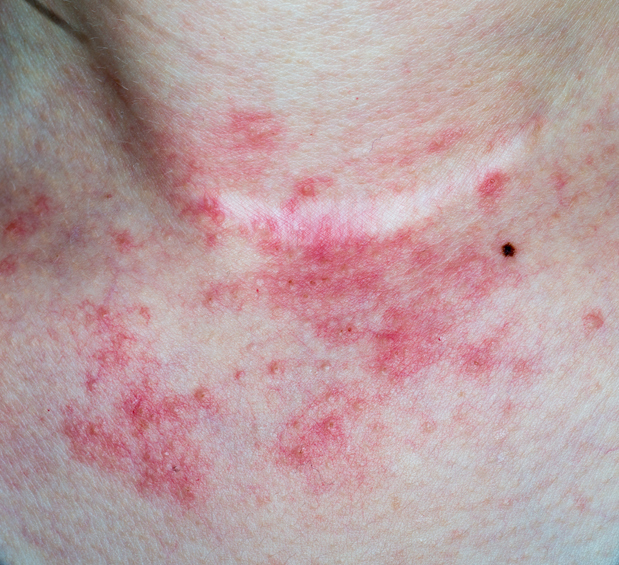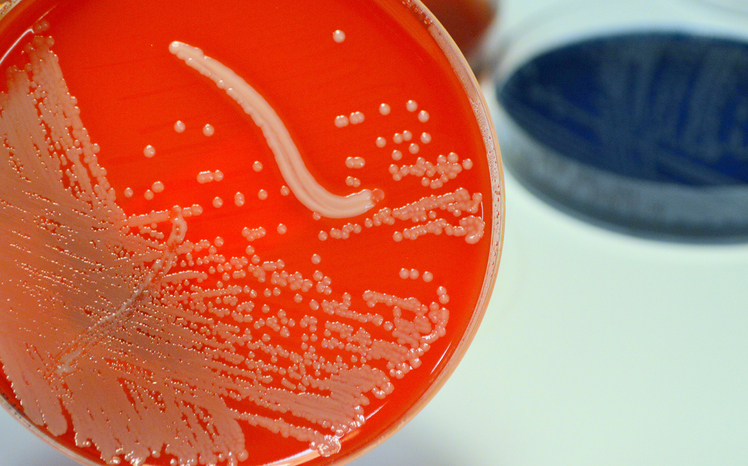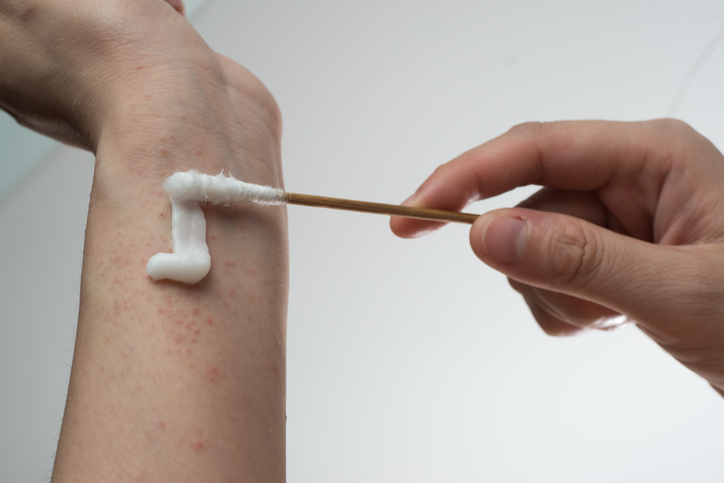Pain
What Is Eczema?

Eczema is the medical term used for a group of health conditions characterized by inflamed, irritated, itchy patches of skin. It can develop at any age, and approximately one in 10 people will develop some type of eczema in their lifetime. It is generally a chronic (long-term) condition that involves periodic flare-ups; however, it can also be acute (short-term).
There are various types of eczema. However, atopic dermatitis is the most common form, and the two terms are often used interchangeably.
Symptoms
Symptoms of eczema depend on the specific type but generally include the following:
- Itchy patches of skin
- Raw, sore, inflamed, red patches of skin
- Weepy sores or oozing blisters on the skin that eventually crust over
- Dry and scaly patches of skin
- Small, rough bumps on the skin
- Thick, leathery patches of skin
- Areas of skin that look lighter or darker than surrounding skin (once healed)
Eczema can occur anywhere on the body, but it frequently occurs on the hands, on the inner elbows, behind the knees, on the ankles or feet, on the scalp, or around the eyes.
Causes and triggers
The precise cause of eczema is not known. However, researchers believe eczema is caused by a combination of genetics and environmental triggers. Symptoms may occur due to an immune system response to irritants or allergens (inside or outside the body). In some cases, a mutation of the gene that produces the protein filaggrin (which helps the body maintain the protective barrier on the top layer of skin) is present.
Eczema can be triggered by various environmental factors. Common triggers include exposure to skin irritants (certain fabrics or skin products), tobacco smoke, other air pollutants, changes in humidity, or preexisting dry skin. Stress can also be a trigger.
Risk factors
Factors that increase the risk of developing eczema include the following:
- Untreated dry skin
- A family member with eczema
- Preexisting psoriasis
- Preexisting allergies, asthma, hay fever, or another form of eczema
- Exposure to certain metals
- Exposure to certain plants, such as poison ivy
- Insect bites
- Blood flow issues in the lower legs
For more information about eczema, visit the National Eczema Association’s website at www.nationaleczema.org.
















